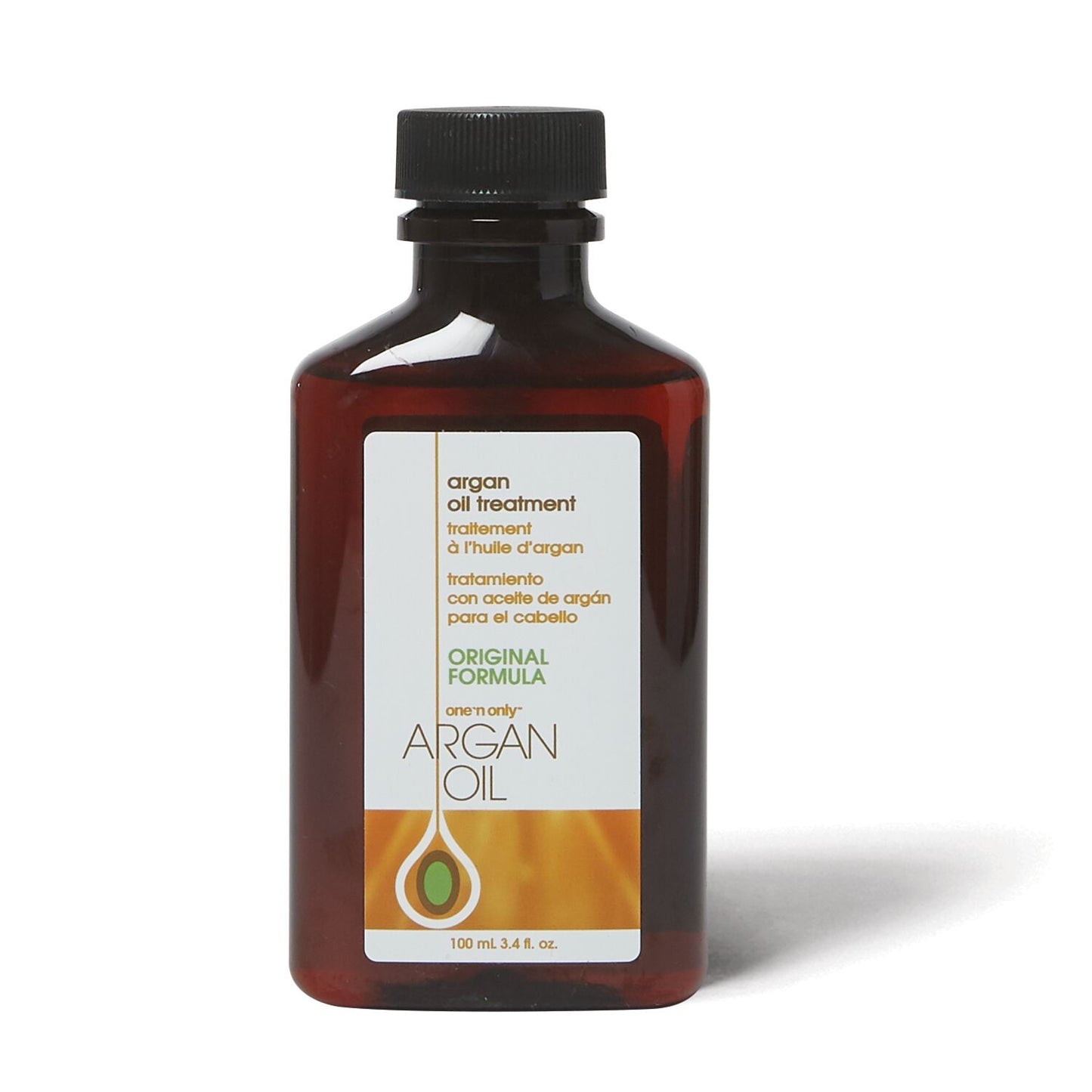One 'n Only
One 'n Only Argan Oil Treatment 3 oz
One 'n Only Argan Oil Treatment 3 oz
Couldn't load pickup availability
BaByliss Pro Argan Oil Treatment 3.4 oz
This amazing oil is one of the rarest oils in the world. Argan Moroccan Oil is a "stand-alone" product that provides a multitude of benefits. It is the perfect product for styling, finishing, smoothing, and conditioning hair.
We are excited to introduce this extraordinary Argan Oil Treatment for your hair. This alcohol-free, non-greasy formula provides instant shine to hair, resulting in tresses that are silky smooth, very manageable and healthy-looking.
Features
- Derived from the Moroccan Argan tree
- Rich in essential fatty acids, Omega 6 and Vitamin E
- Alcohol-free
- Non-greasy, light texture
- Absorbs instantly into hair
- Only a small amount is needed to consistently obtain optimal results
- Use on towel-dried or dry hair
- Use on natural hair, wigs, or extensions
- Can be applied in coloring/chemical processes (coloring, highlighting, straightening, or relaxing)
- Will not stain blonde hair
- Ideal for all hair types
- Pleasant scent
Directions for Use
Apply a small amount to wet or dry hair.
Ingredients
Dimethlcone, Cyclopentasiloxane, Dimethiconol, C12-15 Alkyl Benzoate, Fragrance (parfum), Argania Spinosa, Kernel Oil, Yellow 11, (CI 47000), Red, 17, (CI 26100).
What is Argan Oil? What makes Argan Moroccan Oil such a treasured commodity?
Argan oil is produced from the fruit of the Moroccan argan tree (argania spinosa), which grows only in the southwestern part of the country in an area covering 700,000 to 800,000 hectares. Within the area, there are approximately 21 million trees.
The argan tree lives as long as 200 years, and it reaches heights of 8 to 10 meters. Perfectly suited to region's harsh environment, its roots reach deep into the soil to withstand intense heat, drought and poor soil conditions.
The Argan tree's fruit has a green, fleshy exterior similar to a large olive. The fruit's hard pit, or nut, houses as many as three almond-shaped kernels. Argan oil is derived from these kernels - a lengthy and labor-intensive process. Although mechanical practices have been put in place to simplify production, the most consuming part of the process, cracking the nuts to remove the kernels, is still done manually.
Share


